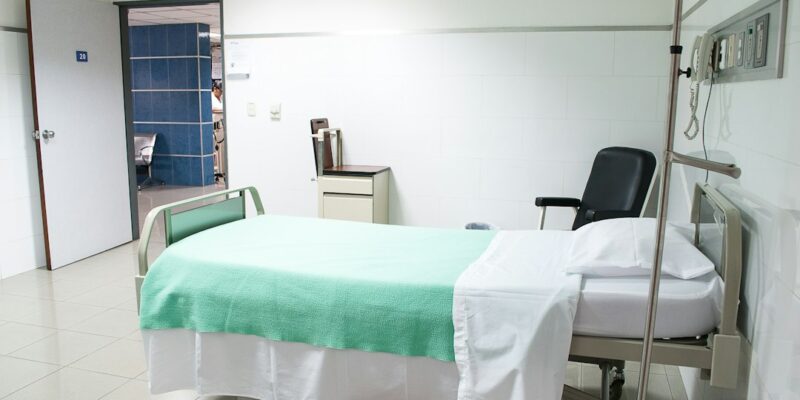
The Power of Prevention: Exploring the Benefits of Prioritizing Preventive Health
Preventive health is a concept that focuses on taking proactive steps to maintain good health and prevent the onset of diseases and illnesses. It involves making healthy lifestyle choices, getting regular check-ups and screenings, and staying up to date with vaccinations. Preventive health is important because it allows individuals to identify potential health risks early on and take necessary actions to prevent or manage them. By prioritizing preventive health, individuals can lead healthier lives, reduce healthcare costs, and improve overall well-being.
Key Takeaways
- Preventive health is important for maintaining overall health and preventing chronic diseases.
- Preventive health measures include regular check-ups, healthy lifestyle choices, and disease screenings.
- Preventive health benefits individuals of all ages, from childhood to old age.
- Preventive health can save money and improve outcomes in the long run.
- Overcoming barriers to preventive health, such as access and awareness, is crucial for promoting a healthier future.
Preventive Health: What It Is and Why It Matters
Preventive health refers to the measures taken to prevent the occurrence of diseases or injuries before they happen. It involves adopting healthy behaviors, such as eating a balanced diet, exercising regularly, getting enough sleep, managing stress, and avoiding harmful substances like tobacco and excessive alcohol consumption. Preventive health also includes regular check-ups with healthcare professionals, screenings for various diseases, and vaccinations.
The importance of preventive health lies in its ability to promote overall wellness. By taking proactive steps to prevent diseases and injuries, individuals can maintain good physical health, mental well-being, and quality of life. Preventive health focuses on addressing the root causes of diseases rather than just treating symptoms reactively. It empowers individuals to make informed decisions about their health and take control of their well-being.
The Benefits of Preventive Health: A Comprehensive Overview
There are numerous benefits associated with preventive health. Firstly, it improves physical health by reducing the risk of developing chronic diseases such as heart disease, diabetes, and certain types of cancer. Regular exercise, a healthy diet, and screenings for conditions like high blood pressure and high cholesterol can help identify potential risks early on and allow for timely interventions.
Secondly, preventive health promotes mental wellness. Engaging in activities that reduce stress, such as exercise or meditation, can improve mental well-being. Additionally, regular check-ups and screenings can detect mental health conditions like depression or anxiety, allowing for early intervention and treatment.
Lastly, preventive health can lead to significant financial savings. By preventing the onset of diseases or detecting them at an early stage, individuals can avoid costly medical treatments and hospitalizations. Preventive measures are often more cost-effective than reactive healthcare, as they focus on prevention rather than treatment.
Research supports the benefits of preventive health. According to a study published in the Journal of the American Medical Association, preventive health measures such as vaccinations, screenings, and lifestyle interventions can prevent up to 80% of chronic diseases and reduce mortality rates. Another study conducted by the Centers for Disease Control and Prevention found that every dollar invested in preventive health can save up to $5.60 in healthcare costs.
Preventive Health Measures: Simple Steps to a Healthier Life
| Preventive Health Measures | Simple Steps to a Healthier Life |
|---|---|
| Exercise | 30 minutes of moderate exercise daily |
| Diet | Eat a balanced diet with plenty of fruits and vegetables |
| Hydration | Drink at least 8 glasses of water daily |
| Sleep | Get 7-8 hours of sleep every night |
| Screenings | Regular health screenings for blood pressure, cholesterol, and cancer |
| Stress Management | Practice stress-reducing activities such as meditation or yoga |
Incorporating preventive health measures into daily life doesn’t have to be complicated. There are simple steps that individuals can take to lead a healthier life and prevent diseases. Here are some practical tips and strategies:
1. Eat a balanced diet: Include a variety of fruits, vegetables, whole grains, lean proteins, and healthy fats in your diet. Limit processed foods, sugary drinks, and excessive salt intake.
2. Exercise regularly: Aim for at least 150 minutes of moderate-intensity aerobic activity or 75 minutes of vigorous-intensity aerobic activity per week. Incorporate strength training exercises at least twice a week.
3. Get enough sleep: Aim for 7-9 hours of quality sleep each night. Establish a regular sleep schedule and create a relaxing bedtime routine.
4. Manage stress: Find healthy ways to cope with stress, such as practicing mindfulness meditation, deep breathing exercises, or engaging in hobbies that you enjoy.
5. Avoid harmful substances: Quit smoking if you are a smoker and limit alcohol consumption to moderate levels (up to one drink per day for women and up to two drinks per day for men).
6. Stay up to date with vaccinations: Follow the recommended vaccination schedule for your age group and consult with your healthcare provider about any additional vaccines that may be necessary.
7. Practice safe sex: Use condoms and get regular screenings for sexually transmitted infections.
8. Practice good hygiene: Wash your hands regularly, cover your mouth and nose when coughing or sneezing, and maintain good oral hygiene.
9. Wear sunscreen: Protect your skin from harmful UV rays by wearing sunscreen with at least SPF 30, even on cloudy days.
10. Stay connected with healthcare professionals: Schedule regular check-ups and screenings as recommended by your healthcare provider. Discuss any concerns or symptoms you may have.
By incorporating these preventive health measures into daily life, individuals can significantly reduce their risk of developing diseases and improve their overall well-being.
Preventive Health for All Ages: From Childhood to Old Age
Preventive health is important at every stage of life, from childhood to old age. Each age group has specific preventive health measures that are crucial for maintaining good health.
In childhood, preventive health measures focus on vaccinations, regular check-ups, and screenings. Vaccinations protect children from serious diseases such as measles, mumps, rubella, polio, and hepatitis. Regular check-ups allow healthcare providers to monitor growth and development, detect any potential health issues early on, and provide necessary interventions or treatments. Screenings for conditions such as hearing loss, vision problems, and developmental delays are also important during childhood.
During adolescence, preventive health measures include vaccinations (such as the HPV vaccine), regular check-ups, and screenings for conditions like scoliosis or mental health issues. Education about healthy lifestyle choices, including nutrition, exercise, and safe sex practices, is also crucial during this stage.
In adulthood, preventive health measures continue to be important. Regular check-ups, screenings for conditions such as high blood pressure, high cholesterol, and certain cancers (such as breast, cervical, and colorectal cancer), and vaccinations (such as the flu vaccine) are recommended. Lifestyle choices such as maintaining a healthy diet, exercising regularly, managing stress, and avoiding harmful substances are also important for maintaining good health.
In old age, preventive health measures focus on maintaining physical and mental well-being. Regular check-ups, screenings for conditions such as osteoporosis, diabetes, and cognitive decline, and vaccinations (such as the pneumonia vaccine and shingles vaccine) are recommended. Engaging in activities that promote cognitive health, such as puzzles or reading, and staying socially connected are also important for overall well-being.
By prioritizing preventive health at every stage of life, individuals can lead healthier lives and reduce their risk of developing diseases or complications.
Preventive Health and Chronic Disease Management: A Winning Combination
Preventive health plays a crucial role in managing chronic diseases such as diabetes, heart disease, and cancer. By adopting healthy lifestyle choices and getting regular check-ups and screenings, individuals with chronic diseases can better manage their conditions and prevent complications.
For example, individuals with diabetes can benefit from preventive health measures such as regular exercise, a healthy diet, monitoring blood sugar levels, taking prescribed medications as directed, and getting regular check-ups to monitor their condition. By managing their diabetes effectively through preventive measures, individuals can reduce the risk of complications such as heart disease, kidney disease, or nerve damage.
Similarly, individuals with heart disease can benefit from preventive health measures such as regular exercise, a heart-healthy diet low in saturated fats and cholesterol, taking prescribed medications to manage blood pressure and cholesterol levels, and getting regular check-ups to monitor their condition. By adopting these preventive measures, individuals can reduce the risk of heart attacks or strokes.
Preventive health also plays a role in cancer prevention and management. Regular screenings for certain types of cancer, such as mammograms for breast cancer or colonoscopies for colorectal cancer, can detect cancer at an early stage when it is more treatable. Additionally, adopting a healthy lifestyle that includes a balanced diet, regular exercise, and avoiding tobacco and excessive alcohol consumption can reduce the risk of developing certain types of cancer.
By combining preventive health measures with appropriate medical treatments, individuals with chronic diseases can better manage their conditions and improve their quality of life. Preventive health allows individuals to take control of their health and reduce the risk of complications associated with chronic diseases.
The Economic Benefits of Preventive Health: Saving Money and Improving Outcomes
In addition to the numerous health benefits, preventive health also offers significant economic benefits. By preventing the onset of diseases or detecting them at an early stage, individuals can save money on healthcare costs and improve health outcomes.
Preventive health measures are often more cost-effective than reactive healthcare. By focusing on prevention rather than treatment, individuals can avoid costly medical procedures, hospitalizations, and long-term care. For example, regular check-ups and screenings can detect conditions such as high blood pressure or high cholesterol early on, allowing for timely interventions that can prevent more serious complications down the line.
According to a study conducted by the Partnership to Fight Chronic Disease, chronic diseases account for 75% of healthcare spending in the United States. By investing in preventive health measures that target chronic diseases, such as lifestyle interventions or screenings, healthcare costs can be significantly reduced. For example, a study published in the New England Journal of Medicine found that every dollar spent on diabetes prevention programs could save up to $5.81 in healthcare costs over a 25-year period.
Preventive health also improves health outcomes and reduces the burden on healthcare systems. By preventing the onset of diseases or detecting them at an early stage, individuals can receive timely treatment and interventions, leading to better health outcomes. This reduces the need for costly emergency room visits or hospitalizations.
Furthermore, preventive health measures can improve productivity and reduce absenteeism in the workplace. By maintaining good health and preventing diseases, individuals are more likely to be able to work and contribute to the economy. According to a study conducted by the World Health Organization, a 10% increase in preventive health measures could lead to a 1% increase in GDP.
By investing in preventive health, individuals, healthcare systems, and economies as a whole can save money, improve health outcomes, and promote overall well-being.
Preventive Health and Mental Wellness: Taking Care of Your Mind and Body
Preventive health is not just about physical well-being; it also encompasses mental wellness. There is a strong connection between physical health and mental well-being, and incorporating mental health into a preventive health routine is crucial for overall wellness.
Physical activity is not only beneficial for physical health but also for mental well-being. Regular exercise has been shown to reduce symptoms of depression and anxiety, improve mood, boost self-esteem, and enhance cognitive function. Engaging in activities such as walking, jogging, swimming, or yoga can have a positive impact on mental wellness.
In addition to exercise, practicing stress management techniques is important for mental well-being. Chronic stress can have detrimental effects on both physical and mental health. Engaging in activities such as meditation, deep breathing exercises, or engaging in hobbies that bring joy and relaxation can help reduce stress levels.
Maintaining social connections is also important for mental wellness. Loneliness and social isolation can have negative effects on mental health. By staying connected with friends, family, or participating in community activities, individuals can improve their mental well-being.
Preventive health also includes regular check-ups with healthcare professionals to monitor mental health. Mental health screenings can help identify conditions such as depression or anxiety early on and allow for timely interventions and treatment.
By incorporating mental health into a preventive health routine, individuals can take care of their mind and body and improve overall well-being.
Overcoming Barriers to Preventive Health: Addressing Access and Awareness
While preventive health offers numerous benefits, there are common barriers that individuals may face when trying to prioritize their health. Two main barriers to preventive health are lack of access and lack of awareness.
Lack of access to healthcare services can prevent individuals from receiving necessary preventive care. This can be due to factors such as financial constraints, lack of health insurance, or living in underserved areas with limited healthcare resources. Lack of access can result in delayed or inadequate screenings, vaccinations, or check-ups, which can increase the risk of developing diseases or complications.
To address the issue of access, community outreach programs and initiatives can be implemented to provide healthcare services to underserved populations. This can include mobile clinics, free or low-cost screenings and vaccinations, and partnerships with community organizations to increase access to healthcare services.
Lack of awareness is another barrier to preventive health. Many individuals may not be aware of the importance of preventive health measures or may not have the necessary knowledge or resources to adopt healthy behaviors. This can result in a lack of motivation or understanding about the benefits of preventive health.
To address the issue of awareness, education campaigns and initiatives can be implemented to raise awareness about the importance of preventive health. This can include providing information about healthy lifestyle choices, the benefits of regular check-ups and screenings, and the availability of resources in the community. Healthcare providers can play a crucial role in educating their patients about preventive health measures during regular check-ups.
By addressing barriers to access and awareness, individuals can overcome obstacles to preventive health and take proactive steps towards a healthier future.
Embracing Preventive Health for a Brighter Future
In conclusion, preventive health is crucial for maintaining good physical and mental health, reducing healthcare costs, and improving overall well-being. By adopting healthy lifestyle choices, getting regular check-ups and screenings, and staying up to date with vaccinations, individuals can prevent the onset of diseases or detect them at an early stage when they are more treatable.
Preventive health offers numerous benefits, including improved physical health, mental wellness, and financial savings. Research supports the effectiveness of preventive health measures in preventing chronic diseases and reducing healthcare costs. By investing in preventive health, individuals can lead healthier lives, reduce the burden on healthcare systems, and improve productivity.
Preventive health is important at every stage of life, from childhood to old age. Each age group has specific preventive health measures that are crucial for maintaining good health. By prioritizing preventive health at every stage of life, individuals can reduce their risk of developing diseases or complications.
While there may be barriers to preventive health such as lack of access or awareness, these can be overcome through community outreach and education initiatives. By addressing these barriers, individuals can take proactive steps towards preventive health for a healthier and brighter future.
In conclusion, embracing preventive health is essential for leading a healthier life and preventing the onset of diseases. By taking proactive steps towards preventive health, individuals can improve their physical and mental well-being, reduce healthcare costs, and promote overall wellness. It is never too late to prioritize preventive health and take control of your own well-being.
FAQs
What is preventive health?
Preventive health refers to measures taken to prevent diseases or injuries before they occur. It involves taking steps to maintain good health and prevent illness, rather than waiting for health problems to arise and then treating them.
What are the benefits of preventive health?
Preventive health has numerous benefits, including reducing the risk of developing chronic diseases such as heart disease, diabetes, and cancer. It can also help individuals maintain a healthy weight, improve mental health, and increase lifespan. Additionally, preventive health measures can save money on healthcare costs by reducing the need for expensive medical treatments.
What are some examples of preventive health measures?
Examples of preventive health measures include getting regular check-ups and screenings, maintaining a healthy diet and exercise routine, getting vaccinated, practicing safe sex, avoiding tobacco and excessive alcohol consumption, and managing stress.
How can preventive health be incorporated into daily life?
Preventive health can be incorporated into daily life by making small changes to daily habits, such as choosing healthier food options, taking the stairs instead of the elevator, and getting regular exercise. It is also important to schedule regular check-ups and screenings with healthcare providers and to stay up-to-date on recommended vaccinations.
Is preventive health only important for certain age groups?
No, preventive health is important for individuals of all ages. While certain preventive health measures may be more relevant for specific age groups, such as mammograms for women over 50, all individuals can benefit from maintaining a healthy lifestyle and getting regular check-ups and screenings.


















